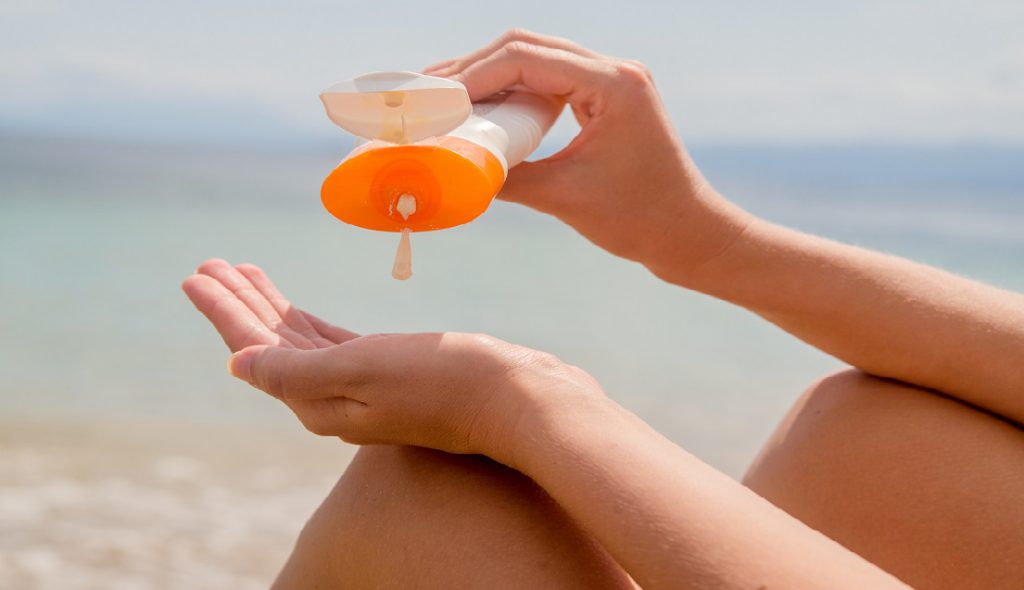
Misinformation about sunscreen safety has been circulating on social media for years. The most recent claim, that wearing sunscreen is harmful and may even cause skin cancer, is not only false but dangerous. We asked a top expert, Elizabeth Buzney, MD, outpatient clinical director of the Department of Dermatology at Brigham and Women’s Hospital and assistant professor of dermatology at Harvard Medical School, to weigh in on this concerning trend. She also serves on The Skin Cancer Foundation’s Photobiology Committee.
Q: You are a respected dermatologist and expert on the effects of sunlight on the skin. How would you respond to someone who says they stopped using sunscreen because they heard or read on social media that it could cause skin cancer?
Dr. Buzney: I have had patients ask me about this! This recent flurry of claims is not based on any new study or data. There is no evidence that wearing sunscreen causes skin cancer. What we do know is that the sun causes most skin cancers. That is absolutely proven. Tanning beds significantly increase risk, too. We also know that skin cancer can be disruptive, disfiguring and even deadly.
Sun exposure causes DNA damage in skin cells. That damage can cause mutations that lead to skin cancer. Getting sunburned at a young age increases your risk for skin cancer as you get older and is strongly associated with melanoma. Tanning, even without sunburn, is also a sign of sun damage and contributes to the formation of skin cancer.
We have also proven that sunscreen helps to prevent skin cancer. Two important Australian studies showed that melanoma was reduced by 50 percent and squamous cell carcinoma by 40 percent in those who used sunscreen daily. That’s huge. Protecting your skin from the sun from a young age, and maintaining that protection consistently throughout your life, is the best way to prevent skin cancer.
It’s important to understand that even if you’re wearing sunscreen consistently now, but you had significant damage from the sun years or even decades before, you could be diagnosed with skin cancer because of delayed onset. Some tumors arise quickly but most skin cancers take a long time to develop. Being diagnosed while wearing sunscreen has no association, nor is it a cause. Also, it is never too late to start protecting your skin, and it will prevent further damage.
I want to stress that when you think about sun protection, sunscreen is important, but you should also think beyond sunscreen. The safest and most effective method, used throughout history, is to minimize your exposure to the sun and wear clothing, hats and sunglasses. Any discussion of sun protection has to start with those.
Q: How do you respond when people say they worry about chemicals in their sunscreen?
Dr. Buzney: They may not think about it this way, but all sunscreen ingredients are chemicals. A molecule is a chemical. Even the “physical” sunscreens containing zinc and titanium are chemicals. Of course, there are different kinds of chemicals, and they can act in different ways. A more accurate classification system for sunscreen ingredients would be “organic” and “inorganic.” Organic ingredients are carbon-based molecules, such as avobenzone, or bemotrizinol (BEMT), an active ingredient long used with good safety data in many countries and likely to be approved by the FDA in late 2025 or early 2026. Inorganic ingredients are the minerals zinc oxide and titanium dioxide.
Q. Any final words for those who may need a little extra nudge?
Dr. Buzney: If you need extra motivation, how about this: People ask me, “How can I prevent my skin from aging? What’s the best thing I can do to keep my skin looking its youngest and healthiest?” They ask about all these expensive antiaging procedures and products. I tell them, “No. If you want your skin to look young and fresh now, and 10 years from now, and 20 years from now, the way to do that is through sun protection. The best thing you can do for your skin is to find a sunscreen you like and use it and other forms of sun protection every single day.”





Comments